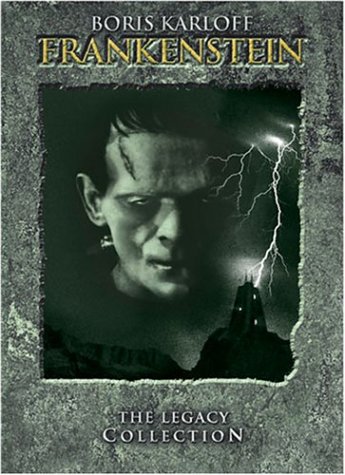All Nonfiction
- Bullying
- Books
- Academic
- Author Interviews
- Celebrity interviews
- College Articles
- College Essays
- Educator of the Year
- Heroes
- Interviews
- Memoir
- Personal Experience
- Sports
- Travel & Culture
All Opinions
- Bullying
- Current Events / Politics
- Discrimination
- Drugs / Alcohol / Smoking
- Entertainment / Celebrities
- Environment
- Love / Relationships
- Movies / Music / TV
- Pop Culture / Trends
- School / College
- Social Issues / Civics
- Spirituality / Religion
- Sports / Hobbies
All Hot Topics
- Bullying
- Community Service
- Environment
- Health
- Letters to the Editor
- Pride & Prejudice
- What Matters
- Back
Summer Guide
- Program Links
- Program Reviews
- Back
College Guide
- College Links
- College Reviews
- College Essays
- College Articles
- Back
Frankenstein
Since its release in 1931, Frankenstein, as directed by James Whale, has been cited as a classic example of horror filmmaking. I, however, beg to differ when it comes to the overall quality of this picture. There is no denying that the film has a good reputation and one cannot refute the fact that it is a highly influential movie. I think it should be kept in mind, though, that Frankenstein has more than a few flaws that keep it from being a truly great film. Do not be mistaken. I don’t mean to imply that it is a bad film, rather, it is this reviewer’s conviction that the general consensus on Frankenstein is more than a little bloated.
I shall start by trying to highlight the good that the film has to offer. What stands out the most in that respect is the excellent lighting and cinematography. The castle scenes and the climactic scene at the mill are the best examples of the film’s technical achievements. In an angry mob sequence near the end of the film, the darkness of the setting conflicts sharply with the light of a fire raging at the mill and this works to a visceral effect. A second positive aspect of Frankenstein is the acting of the man playing the monster himself- Boris Karloff. Most of the cast was pretty horrible, but this performance was their saving grace. Colin Clive gives a good performance as well, but its Karloff’s lumbering monster which steals the show. He plays it with a quiet ferocity as well as a gentleness that makes the monster exactly what it needs to be.
Despite these things, the film manages to fail on a few levels. My biggest dissatisfaction with Frankenstein is the rushed direction of James Whale. The film is made in the grand old Hollywood tradition of making a quick picture that is done purely for revenue and without respect for the care that needs to be put into a story like this. At a speedy seventy minutes, the film zips through the story, not bothering to pause and assess what may be going on beneath the surface. My feelings are not without grounds. The story lends itself to a proper exploration of a number of thought-provoking themes. But Whale moves so quickly through the story that he neglects to develop these themes. Instead they are hinted at early on, and then never completed. For instance, the dynamic between the monster and his creator could have been intriguingly evaluated, but Whale never addresses it, hence deadening the whole film with a coldness that wipes it of any true feeling that it could have possessed. The question of if man is meant to “play God” is hinted at but again, it is never returned to. A third theme that could have easily been run through the film is that of “all people being misunderstood and having an inner goodness despite the savagery that we display when threatened”. The monster stands as the embodiment of such an idea, but the film fails to carry this through and see it to its full potential.
The ending was Frankenstein’s final chance to redeem itself. The setup was great and the mood was strong, but it all fell to pieces when the reunion of Dr. Frankenstein and his monster was mishandled. Never is it acknowledged in that sequence that the two have a special connection to each other. It ends bluntly with the monster hurling Frankenstein off the top of a mill and then the monster subsequently getting helplessly trapped inside, amidst the smoke and flames. Preposterously, Frankenstein survives his fall and the final scene- consisting of Baron Frankenstein joking awkwardly with a few maids outside the recovering doctor’s bedroom- is played without a hint of darkness and without a single ominous chord being struck. Like the monster, the film could have been brought back to life had these concluding scenes been directed/written differently.
And so, I come to the heart of my criticism. A film cannot be praised merely for its ideas, but instead, how those ideas are expressed. The way this film was made confirms that it was done with little respect for the (Huge) potential of the story being told. Sadly, it was made much shorter than the material demanded and it suffered because of it. The raw power of a few scenes in particular, such as the little girl meeting the monster and her father wordlessly carrying her limp body into town afterwards bump up my rating a bit, but they cannot save the film entirely. Overall, I’d say it was enjoyable, despite its glaring mistakes. I reiterate my opening stance, stating: although it is called a classic film, Frankenstein is no masterpiece.
3.25 out of 5 stars
Similar Articles
JOIN THE DISCUSSION
This article has 0 comments.

